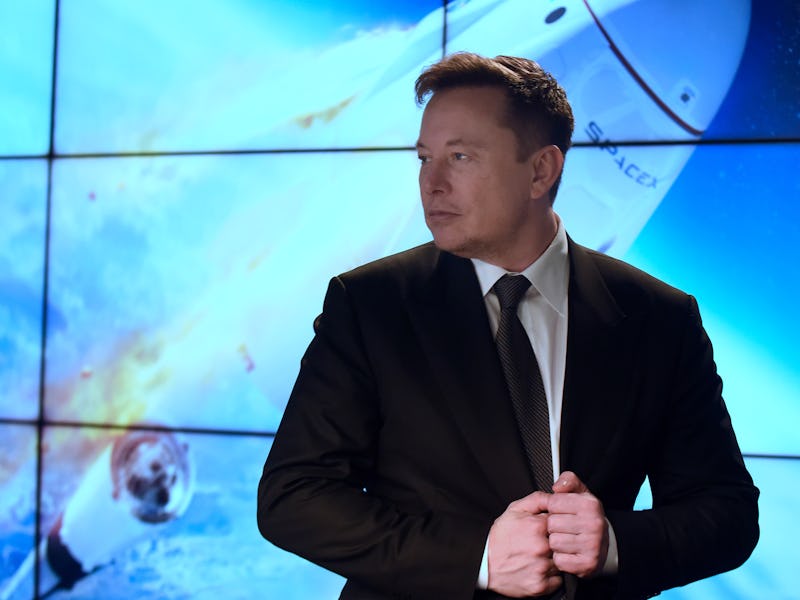SpaceX Mars city: Elon Musk confirms he's sticking to ambitious launch date
The SpaceX CEO has a bold target to start his Mars settlement plans, and he's not backing down.

SpaceX wants to build a city on Mars, and it's not waiting around to get started.
On Friday, CEO Elon Musk confirmed via Twitter that he's still aiming to launch the first ships to Mars by 2022. These ships will hold cargo designed to support a future manned mission. That mission will come in 2024, the next time when the Earth and Mars are close again.
Musk first outlined this target in a September 2017 presentation, where he described the BFR vehicle that would support this mission. At the time, Musk said the 2022 figure was "not a typo … although it is aspirational." A lot has changed since then – BFR became Starship, a mini-Starship flew, several prototypes exploded – but it seems Musk's determination to reach the red planet in super-fast time has not wavered.
An artist's impression of the Mars city.
Why the rush? Musk explained via Twitter Thursday that he sees it as a race against time. Twitter user "PPathole" wrote that within another half a billion years the oceans will evaporate as the sun expands, meaning humanity has a short window to expand out and resettle. Musk responded to this:
"That’s when all life on Earth will be boiled off. What matters is how long civilization is capable of making the jump to Mars. This could be a very short period of time measured in decades. It took 4.5 billion years to get to this point & civilization isn’t looking super stable."
From these two initial missions, the plan would be to continue sending rockets to the red planet until there were enough resources to become a self-sustaining civilization. This, he suggested Thursday, would take "about a dozen transfer windows." Earth and Mars align approximately every 26 months, meaning this process could take around 25 years. That would mean that a self-sustaining Mars city could emerge before 2050.
This plan is based on the idea that the city would require around one million tons of cargo. This would cost, Musk explained in August 2019, between half a percent and one percent of the world's gross domestic product. That same month, he pegged the figure at somewhere between $100 billion and $10 trillion. This cost would vary depending on how much it costs to launch one ton to Mars, as the low-end figure assumes a price of $100,000 per ton.
A Starship prototype.
The Starship is central to all these plans. Currently under construction at the Boca Chica facility in Texas, the stainless steel machine is capable of transporting up to 150 tons or 100 people into space at a time. The fully-reusable rocket uses liquid oxygen and methane as fuel, accessible resources on Mars, which would enable humans visiting the planet to refuel and either return home or venture out further. To support the project, SpaceX is aiming to produce 1,000 Starships.
SpaceX's diagram of how a launch would work.
The Inverse analysis – The Mars city is probably SpaceX's most ambitious project. Engineers have described how it can be used for scientific research, expanding human knowledge, and developing into its own economy. Third-party experts speaking to Inverse have described how it could lead to changes in human evolution, new economic models, even a new nation – but convincing those rich enough to buy a ticket to go to Mars may prove a tricky sell.
Perhaps most interesting about Musk's new date is that it comes before the planned 2023 mission, which would send Japanese billionaire Yusaku Maezawa and a team of artists on a trip around the moon. Paul Wooster, SpaceX principal Mars development engineer, stated in October 2019 that it's not an either-or decision though: “We’re really excited about the possibilities of doing both, having bases on the moon while we’re also setting up these cities on Mars.”
SpaceX has no intention of waiting around, it seems.